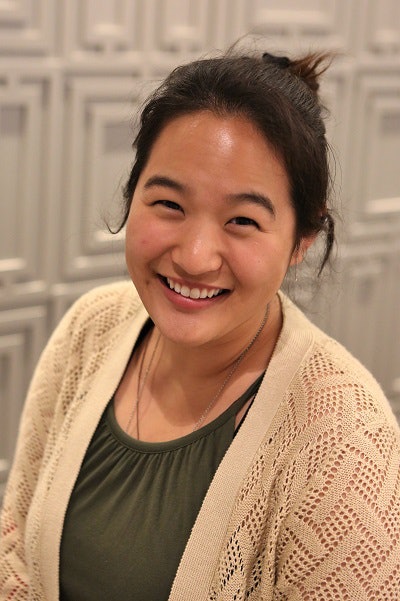I was always too loud as a kid. I was talkative in class whether that meant raising my hand to ask questions or getting in trouble for chatting with my classmates. I drove my parents crazy with how often and how vocally I questioned their authority. I loved to talk, even if that meant to argue, so I joined the Speech and Debate team in high school. My senior year, I was the captain of the team while also performing in the school play. I did not have a microphone, so of course I projected as loud as I could into the audience.
In a way, my loudness is a contradiction of the stereotypes that Asians, particularly Asian women, are supposed to embody. Though my parents would probably deny it now, I think they wished I were bit more reserved, obedient, and demure as a teenager. They wanted me to practice the piano without complaining, take practice SAT tests without arguing, and obey their instructions. It would have been a lot easier for them if I had been a more stereotypically and characteristically “Asian daughter.”
 Pearl Lo
Pearl LoThe ongoing debate on whether affirmative action discriminates against Asian American students made me reflect on what unique characteristics define this Asian-ness. In 2019, a federal judge ruled that Harvard’s admissions policies did not intentionally discriminate against Asian Americans, and the Justice Department dropped a similar lawsuit against Yale on Wednesday. However, Students for Fair Admissions, the organization that sued Harvard, is picking up the Yale lawsuit and refiling it under their name.
While reading through the details of both lawsuits, I had to ask: what was the reason for the slightly lower personal ratings that Asian Americans received, and what got me, an Asian American, into college in the first place? I didn’t have the highest GPA in high school, nor the highest SAT scores. However, I was accepted into the University of Pennsylvania, an Ivy League school, when many of my peers were not. They pulled as many all-nighters as I did, and they were involved in as many clubs. What set me apart?
According to Judge Allison Burrough’s Findings of Fact, Harvard admissions officers are advised to look for “qualities of character” such as “courage,” “judgment,” “resilience,” “citizenship,” and “spirit and camaraderie with peers” to determine an applicant’s personal rating. These traits are valued in various cultures; however, the issue lies in how they are interpreted differently in each one.
I believe that luck had a lot to do with my admission to Penn. But if I had to pick a single reason why I was accepted over my peers, it would be my loudness—my brazen, verbally inquisitive, sometimes argumentative, “I will fight to overcome”-ness. My loudness that constantly upset my conservative, immigrant parents was an easily recognizable representation of the qualities that admissions officers look for.
On the contrary, modesty and humility are valued over confidence in my parents’ Korean culture. Remaining quiet is a sign of respect, and being outspoken can be interpreted as rudeness, especially to one’s elders. Getting along and having everyone be happy is more important than being right. You don’t argue. You make peace.
These attributes define “judgment,” “resilience,” and “camaraderie” for my parents, while simultaneously acting as indicators of submissiveness, passivity, and dispassion in my Americanized culture. Based on many “American” values, I was successful precisely because I defied my parents’ cultural norms.
So, where does that leave students who, unlike me, exhibit values in a way that is specific to their cultures? Especially if their beliefs conflict with America’s preferred cultural standards? Is assimilating to how America defines desirable traits a necessary advantage in the admissions equation? It shouldn’t be.
Judge Burroughs made the correct decision in upholding current legal precedent that protects affirmative action. Race-conscious and holistic admissions are essential for a diverse, enriching learning environment. They are necessary in promoting equity and provide opportunities for individuals who have historically been underserved. Holistic admissions should encourage students to celebrate different components of their unique personal identities rather than conform to what they think admissions officers are looking for.
Students for Fair Admissions will undoubtedly continue their fight to end race-conscious admissions. However, these highly visible cases are opportunities for Yale, Harvard, and all schools, to examine how they will take steps to respect the validity of different cultures when making admissions decisions, especially as demographics are shifting, to serve diverse student populations.
Pearl Lo is a Ph.D. student at The University of Maryland















